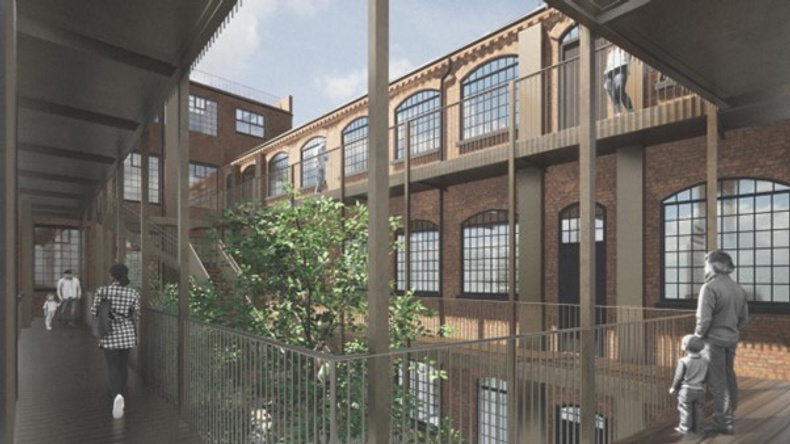Warehouse in Jewellery Quarter restored with new homes

New homes for rent will be available in one of the Jewellery Quarter’s most historic buildings following investments from the West Midlands Combined Authority (WMCA).
Developers Great Hampton Street Button Works and Hanehouse Developments will restore the semi-derelict warehouse, originally built in the mid-19th century, and celebrate its heritage by bringing it back to active use.
The scheme will create 29 apartments – 20 one-bed units and 9 two-bed units – providing quality accommodation for up to 53 people.
The WMCA has provided loan support from the Residential Investment Fund, along with grant support from devolved Housing & Land funds.
Button Works, formerly known as Great Hampton Works, was built in 1872. The architect behind the Victorian-warehouse, Henry Richard Yardley Yeoville Thomason – was the same person who designed the council house in Birmingham city centre.
The apartments will include original features such as exposed beams and brickwork set around two landscaped courtyards
No parking will be provided for the Button Works development given the proximity of the scheme to both Birmingham city centre and Jewellery Quarter train and tram stations.
Richard Parker, Mayor for the West Midlands, and Chair of the WMCA, said: “When you walk past the Button Works factory you see a wonderful building full of character – but one in need of restoration.
“We are proud of where we live – so I am pleased to see these buildings brought back as part of a vibrant high street in the Jewellery Quarter.
“We will continue to invest and support developers to regenerate former factories and industrial estates in our region into sustainable and high-quality homes."
Richard Whitehouse, director of Hanehouse, said: “We are proud to have been instrumental in bringing forward this important and impressive building for the next part of its journey.
“From jewellery manufacture in the 1870’s to clothing wholesale in the late 20th century and now it will provide high quality homes in an iconic building.
“We are grateful to the involvement of WMCA in assisting with enabling the delivery of new homes and we are already looking for our next heritage project in the City.”
“We are heavily involved in developing brownfield sites in urban areas for new homes and apartments, having secured planning consent for 131 apartments in Digbeth, which we are looking to get onto site, as well as currently bringing a site through the planning process for a development for 300 apartments within the ring road in Birmingham.”
The WMCA have made available a £200 million funding pot to spearhead the delivery of over 12,000 homes. Developers are encouraged to apply for the funding to deliver more high-quality homes and create better places for local communities in the region.
A minimum of 20 per cent of homes built using WMCA money will be classed as affordable. In 2021, the West Midlands was the first region in the UK to introduce its own regional definition of affordability, which is linked to real world local incomes rather than property prices.
The investment supports WMCA’s ambition to encourage more town centre living for people from a variety of social backgrounds.
Access to the WMCA funding was provided by Frontier Development Capital Ltd (FDC), who continue to work closely with property developers to arrange investments from the WMCA's Commercial Investment Fund (CIF) and Residential Investment Fund (RIF).
Pictured: Concept CGI for what Button Works may look like.



